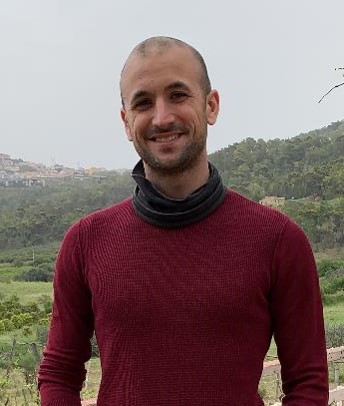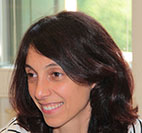Studying at the University of Verona
Here you can find information on the organisational aspects of the Programme, lecture timetables, learning activities and useful contact details for your time at the University, from enrolment to graduation.
Academic calendar
The academic calendar shows the deadlines and scheduled events that are relevant to students, teaching and technical-administrative staff of the University. Public holidays and University closures are also indicated. The academic year normally begins on 1 October each year and ends on 30 September of the following year.
Course calendar
The Academic Calendar sets out the degree programme lecture and exam timetables, as well as the relevant university closure dates..
| Period | From | To |
|---|---|---|
| Primo semestre | Oct 4, 2021 | Jan 28, 2022 |
| Secondo semestre | Mar 7, 2022 | Jun 10, 2022 |
| Session | From | To |
|---|---|---|
| Sessione invernale d'esame | Jan 31, 2022 | Mar 4, 2022 |
| Sessione estiva d'esame | Jun 13, 2022 | Jul 29, 2022 |
| Sessione autunnale d'esame | Sep 1, 2022 | Sep 30, 2022 |
| Session | From | To |
|---|---|---|
| Sessione estiva LM7 | Jul 13, 2022 | Jul 13, 2022 |
| Sessione autunnale LM7 | Oct 11, 2022 | Oct 11, 2022 |
| Sessione invernale LM7 | Mar 9, 2023 | Mar 9, 2023 |
| Period | From | To |
|---|---|---|
| Festa di Tutti i Santi | Nov 1, 2021 | Nov 1, 2021 |
| Festa dell'Immacolata Concezione | Dec 8, 2021 | Dec 8, 2021 |
| Festività natalizie | Dec 24, 2021 | Jan 2, 2022 |
| Festa dell'Epifania | Jan 6, 2022 | Jan 7, 2022 |
| Festività pasquali | Apr 15, 2022 | Apr 19, 2022 |
| Festa della Liberazione | Apr 25, 2022 | Apr 25, 2022 |
| Festività Santo Patrono di Verona | May 21, 2022 | May 21, 2022 |
| Festa della Repubblica | Jun 2, 2022 | Jun 2, 2022 |
| Chiusura estiva | Aug 15, 2022 | Aug 20, 2022 |
Exam calendar
Exam dates and rounds are managed by the relevant Science and Engineering Teaching and Student Services Unit.
To view all the exam sessions available, please use the Exam dashboard on ESSE3.
If you forgot your login details or have problems logging in, please contact the relevant IT HelpDesk, or check the login details recovery web page.
Should you have any doubts or questions, please check the Enrollment FAQs
Academic staff
 giulio.mazzi@univr.it
giulio.mazzi@univr.it
Study Plan
The Study Plan includes all modules, teaching and learning activities that each student will need to undertake during their time at the University.
Please select your Study Plan based on your enrollment year.
1° Year
| Modules | Credits | TAF | SSD |
|---|
2 modules among the following2° Year activated in the A.Y. 2022/2023
| Modules | Credits | TAF | SSD |
|---|
3 modules among the following| Modules | Credits | TAF | SSD |
|---|
2 modules among the following| Modules | Credits | TAF | SSD |
|---|
3 modules among the following| Modules | Credits | TAF | SSD |
|---|
Legend | Type of training activity (TTA)
TAF (Type of Educational Activity) All courses and activities are classified into different types of educational activities, indicated by a letter.
Genomics (2021/2022)
Teaching code
4S008244
Teacher
Coordinator
Credits
6
Language
Italian
Scientific Disciplinary Sector (SSD)
BIO/18 - GENETICS
Period
Primo semestre dal Oct 4, 2021 al Jan 28, 2022.
Learning outcomes
The advent of next-generation sequencing and its more recent evolutions made genome analysis accessible for all organisms, from the simplest prokaryotes to the more complex ones of agrifood-relevant plants. Genome sequencing is no longer the target but the starting point, a fundamental tool for breeding programs, the study of characters and the biotechnological manipulation. The course will provide the knowledge necessary to interpret and plan the analysis of genomes and their regulation. The course will describe the structure and function of eukaryotic, prokaryotic and viral genomes, with particular emphasis on organisms and microorganisms of interest for agri-food biotechnology. Genome structure, gene composition, features of non-coding portions and repeated regions will be analyzed. Moreover, the course will describe how genomes evolve, the analysis and the comparison of genomes in a population and the concept of pan-genome in plants. Part of the course will focus on the analysis of epigenome and its importance in the regulation of genome expression, with theoretical and methodological notions for the study of chromatin, DNA methylation and histone modifications. Finally, published case studies of plant genomes that represent reference examples will be analyzed.
Program
THE LESSONS WILL TAKE PLACE IN DUAL MODE.
ALL TEACHING MATERIALS AND LESSON RECORDINGS WILL BE AVAILABLE IN THE COURSE'S MOODLE PLATFORM.
Part 1. STRUCTURAL CHARACTERIZATION OF GENOMES
A) The anatomy of genomes
- Structural and genetic organization of prokaryotic genomes and eukaryotic organelles
- Structural and genetic organization of eukaryotic genomes
- Coding and non-coding genes
- Repeated elements
- Pseudogenes
B) Methods for the structural analysis of genomes
- First generation sequencing
- Second generation sequencing methods
- Third generation sequencing methods
- Methods for generating physical and genetic maps
- Introduction to molecular markers and to methods for their analysis
- Sequencing based on linked-reads
C) Approaches for the study and assembly of genomes
- de-novo Assembly:
- hierarchical approach
- shot-gun approach
- hybrid approach
- Comparative analysis:
- reference-based assembly
- re-sequencing
D) Genome Projects
Students will actively carry out the analysis, presentation and discussion of original articles related to genome sequencing projects of organisms relevant for the agrifood field.
Part 2. FUNCTIONAL CHARACTERIZATION OF GENOMES
A) The transcriptome
- Components of the transcriptome
- Classes and functions of long and small non-coding RNA
B) Methods for the analysis of transcriptome
- Transcriptome analysis by second-generation sequencing
- Transcriptome analysis by third generation sequencing
- Analysis of microRNAs (PCR-based methods and sequencing)
C) Annotation of genomes
- Ab initio gene prediction
- Annotation guided by experimental evidence
- Annotation based on synteny analysis
- Genomic browsers
- In-silico functional annotation
D) The epigenome
- DNA organization in the nucleus and chromatin structure
- Introduction to epigenetic markers (histone modifications and DNA methylation)
E) Methods for the analysis of the epigenome
- Chromatin conformation analysis
- Analysis of DNA-protein interaction
- Analysis of histone markers
- Methylation analysis
Part 3. METAGENOMICS
A) Methods for metagenomic analysis
- Sequence-based metagenomics vs functional metagenomics
- DNA barcodes and metabarcoding
- Metagenomics by Whole Genome Shot-gun sequencing
- Shot-gun metagenomics by HiC, linked-reads and long reads
- Meta-transcriptomics
B) Metagenomic projects
Students will actively analyze, present and discuss original articles related to metagenomic projects relevant for relevant for the agrifood field.
Part 4. EVOLUTION OF GENOMES
- The first genomes and evolution of complex genomes
- Mutations and DNA repair
- Gene duplication, gene families and gene conversion
- Chromosomal alterations and polyploidy
- Horizontal transfer to prokaryotes
- Bacterial and plant pan-genome
B) PanGenome projects
Students will actively analyze, present and discuss original articles on pangenome reconstruction and analysis
Examination Methods
The final exam includes the presentation of a scientific paper and a written exam (10 open questions) covering the course program. The written exam will last 2 hours.
The final vote will result from the sum of votes assigned to the paper presentation (max 3 points) and the vote of written exam (maximum 3 points for each question). Voting will be expressed in thirtieths.
It will be also possible to carry out the exam remotely. In this case, the article will be presented in a teleconference and the exame will be oral (via zoom). at this aim, please get in touch via email: marzia.rossato@univ.it
Type D and Type F activities
Le attività formative di tipologia D sono a scelta dello studente, quelle di tipologia F sono ulteriori conoscenze utili all’inserimento nel mondo del lavoro (tirocini, competenze trasversali, project works, ecc.). In base al Regolamento Didattico del Corso, alcune attività possono essere scelte e inserite autonomamente a libretto, altre devono essere approvate da apposita commissione per verificarne la coerenza con il piano di studio. Le attività formative di tipologia D o F possono essere ricoperte dalle seguenti attività.
1. Insegnamenti impartiti presso l'Università di Verona
Comprendono gli insegnamenti sotto riportati e/o nel Catalogo degli insegnamenti (che può essere filtrato anche per lingua di erogazione tramite la Ricerca avanzata).
Modalità di inserimento a libretto: se l'insegnamento è compreso tra quelli sottoelencati, lo studente può inserirlo autonomamente durante il periodo in cui il piano di studi è aperto; in caso contrario, lo studente deve fare richiesta alla Segreteria, inviando a carriere.scienze@ateneo.univr.it il modulo nel periodo indicato.
2. Attestato o equipollenza linguistica CLA
Oltre a quelle richieste dal piano di studi, per gli immatricolati dall'A.A. 2021/2022 vengono riconosciute:
- Lingua inglese: vengono riconosciuti 3 CFU per ogni livello di competenza superiore a quello richiesto dal corso di studio (se non già riconosciuto nel ciclo di studi precedente).
- Altre lingue e italiano per stranieri: vengono riconosciuti 3 CFU per ogni livello di competenza a partire da A2 (se non già riconosciuto nel ciclo di studi precedente).
Tali cfu saranno riconosciuti, fino ad un massimo di 6 cfu complessivi, di tipologia F se il piano didattico lo consente, oppure di tipologia D. Ulteriori crediti a scelta per conoscenze linguistiche potranno essere riconosciuti solo se coerenti con il progetto formativo dello studente e se adeguatamente motivati.
Gli immatricolati fino all'A.A. 2020/2021 devono consultare le informazioni che si trovano qui.
Modalità di inserimento a libretto: richiedere l’attestato o l'equipollenza al CLA e inviarlo alla Segreteria Studenti - Carriere per l’inserimento dell’esame in carriera, tramite mail: carriere.scienze@ateneo.univr.it
3. Competenze trasversali
Scopri i percorsi formativi promossi dal TALC - Teaching and learning center dell'Ateneo, destinati agli studenti regolarmente iscritti all'anno accademico di erogazione del corso https://talc.univr.it/it/competenze-trasversali
Modalità di inserimento a libretto: non è previsto l'inserimento dell'insegnamento nel piano di studi. Solo in seguito all'ottenimento dell'Open Badge verranno automaticamente convalidati i CFU a libretto. La registrazione dei CFU in carriera non è istantanea, ma ci saranno da attendere dei tempi tecnici.
4. Periodo di stage/tirocinio
Oltre ai CFU previsti dal piano di studi (verificare attentamente quanto indicato sul Regolamento Didattico): qui informazioni su come attivare lo stage.
Insegnamenti e altre attività che si possono inserire autonomamente a libretto
| years | Modules | TAF | Teacher |
|---|---|---|---|
| 1° 2° | History and Didactics of Geology | D |
Guido Gonzato
(Coordinator)
|
| years | Modules | TAF | Teacher |
|---|---|---|---|
| 1° 2° | Python programming language | D |
Giulio Mazzi
(Coordinator)
|
Career prospects
Module/Programme news
News for students
There you will find information, resources and services useful during your time at the University (Student’s exam record, your study plan on ESSE3, Distance Learning courses, university email account, office forms, administrative procedures, etc.). You can log into MyUnivr with your GIA login details: only in this way will you be able to receive notification of all the notices from your teachers and your secretariat via email and soon also via the Univr app.
Graduation
Deadlines and administrative fulfilments
For deadlines, administrative fulfilments and notices on graduation sessions, please refer to the Graduation Sessions - Science and Engineering service.
Need to activate a thesis internship
For thesis-related internships, it is not always necessary to activate an internship through the Internship Office. For further information, please consult the dedicated document, which can be found in the 'Documents' section of the Internships and work orientation - Science e Engineering service.
Final examination regulations
List of theses and work experience proposals
| theses proposals | Research area |
|---|---|
| Dinamiche della metilazione del DNA e loro contributo durante il processo di maturazione della bacca di vite. | Various topics |
| Miglioramento del profilo nutrizionale e funzionale di sfarinati di cereali mediante fermentazione con batteri lattici | Various topics |
| Risposte trascrittomiche a sollecitazioni ambientali in vite | Various topics |
| Studio delle basi genomico-funzionali del processo di embriogenesi somatica in vite | Various topics |
Attendance
As stated in the Teaching Regulations for the A.Y. 2022/2023, attendance is not mandatory. However, professors may require students to attend lectures for a minimum of hours in order to be able to take the module exam, in which case the methods that will be used to check attendance will be explained at the beginning of the module.

 +39 045 802 7839
+39 045 802 7839

























